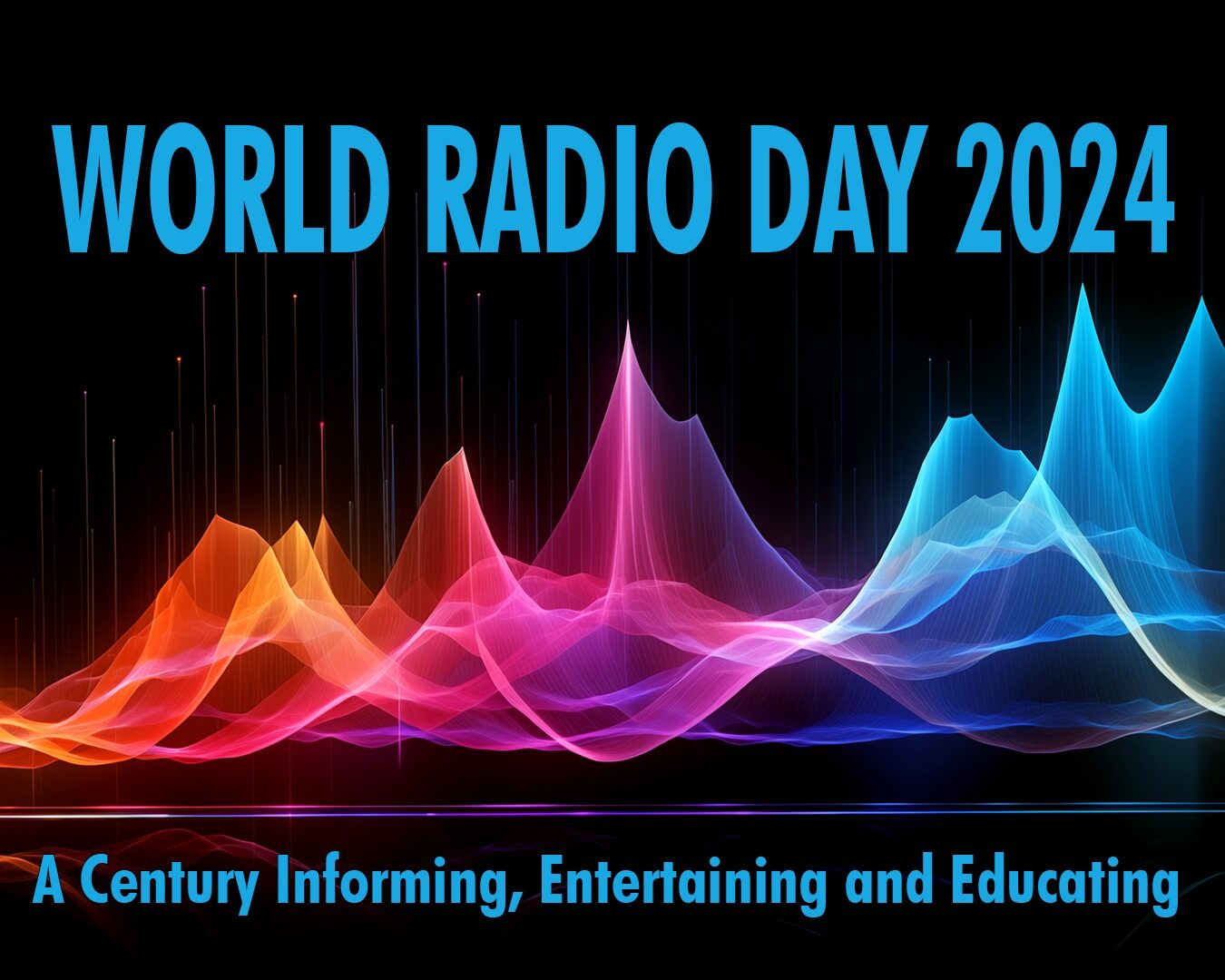 Many thanks to SWLing Post contributor, Paul Jamet, who shares the following contribution to World Radio Day 2024 on behalf of the Club du Perche:
Many thanks to SWLing Post contributor, Paul Jamet, who shares the following contribution to World Radio Day 2024 on behalf of the Club du Perche:
Word Radio Day 2024
Paul JAMET
Member of the Radio Club du Perche
Among the framing elements of the 2024 edition, UNESCO states on its website that the celebration highlights three important values:
UNESCO – The indelible history of Radio and its powerful impact upon news, drama, music, sports …
P.J. – Radio is a grand lady, a hundred years old, still young at heart and full of projects! Its birth and history have given rise to numerous publications and captivating accounts, because for over a century, radio has been the world’s sound memory. Radio stations regularly draw on their rich archives to help us relive key events, because history informs the future. Since the 1920s, radio has demonstrated its usefulness in explaining how the world works, educating listeners and providing entertainment (music, theater, sports, etc.).
UNESCO – The ongoing utilitarian value of Radio as a relatively free and portable public safety net during emergencies and power outages brought on by natural and human-made disasters such as storms, earthquakes, floods, heat, wildfires, accidents and warfare.
P.J. – In recent years, with the increasing number of conflicts and natural disasters resulting from climate change, radio has taken on a new and extremely important role, that of providing a public safety network for both emergency resources and victims. Dozens of models of portable emergency receivers are already available, while others are arriving on the market all the time, using new technologies such as the digitization of radio signals, the use of emergency frequencies for broadcasting warning messages: NOAA frequencies in North America, EWF (Emergency Warning Functionality) technology with DRM broadcasting, and expected also with DAB+ broadcasting.
UNESCO – The continuing democratic value of Radio to serve as a grassroots catalyst for connectedness within underserved groups including immigrant, religious, minority and poverty-stricken populations; and as an instantaneous bellwether of public opinion expressed through the auspices of free speech in the public space.
P.J. – I was born after the Second World War. My mother often told me about the importance of [clandestine] listening to Radio Londres broadcast by the BBC to occupied France. At the time, the BBC was broadcasting messages to the Resistance operating in France and other European countries. Since then, radio has played a decisive role in many similar situations. Such was the case with Radio Free Europe and Radio Liberty until the fall of the Berlin Wall in November 1989. More recently, a few days after the outbreak of the Russian-Ukrainian war, some stations reactivated their Shortwave transmitters to broadcast special programs to the conflict zone – Zone CIRAF 29.
Since the start of the third millennium, or even before, several countries have abandoned international broadcasting for a variety of reasons: financial, but also linked to the declining audience, preferring to use the Internet, at least in the best-equipped countries. Many stations have disappeared, and not the least, stations that made a major contribution to the plurality of information and points of view, such as RCI – Canada and RSI – Switzerland, not forgetting DW – Germany and ABC – Australia. Some countries have even demolished their installations and taken down their antennas!
Yet there are still vast areas of the globe without Internet access or a reliable Internet network. There are still countries where freedom of information is severely controlled.
In a recent article published on the Radioworld website, Kim Andrew Elliott, who produced “VoA Radiogram”, argues for a revival of Shortwave by proposing Shortwave 2.0, essentially using the following argument: « radio is the ultimate internet circumvention tool ». The author criticizes DRM for dropping out when transmission conditions are poor. He prefers text transmission via the system he has experimented with, which he believes to be more robust. Finally, he adds that « international broadcasters should not close any more shortwave transmitting sites. They are essential facilities to relay information when the internet is blocked, which will happen in more places, more frequently and more thoroughly ».
Through regular listening and exchanges, I fully support international radio stations for the indispensable role they play in providing a plurality of information, but also in providing entertainment (there are many cultural programs) and education, enabling the discovery of other countries and, above all, a better understanding of other cultures.
As for the Clubs d’écouteurs, they have had to adapt to changes in the radio landscape and advances in information technology. On the strength of its 40 years of existence and experience, the Radio Club du Perche wishes to take up these challenges and continue its role of promoting international broadcasting – particularly French-speaking – by adapting as best we can to the technological evolutions that are taking place.
In conclusion, international shortwave broadcasting not only makes sense, but is still very useful for a large number of listeners or in certain situations. Nevertheless, it must adapt to the new realities of modern communication if it is to remain relevant and viable.
Paul JAMET – [email protected]
Radio Club du Perche
Paul adds that his club members are writing stations to not only submit listener reports but to thank them for their service on the air. We encourage readers to do the same: reach out to any/all radio stations you listen to regularly and let them know you’re listening!
